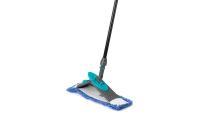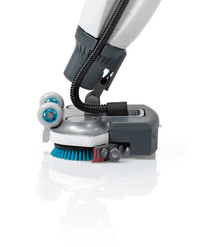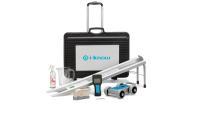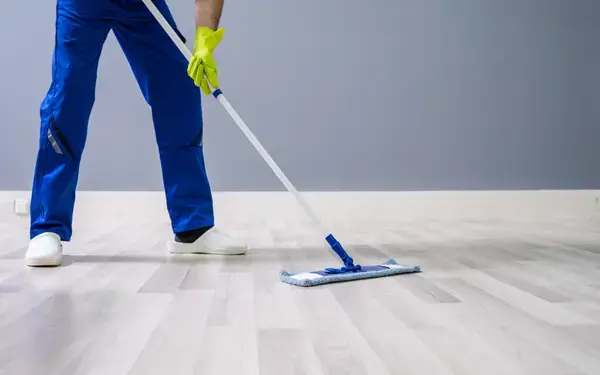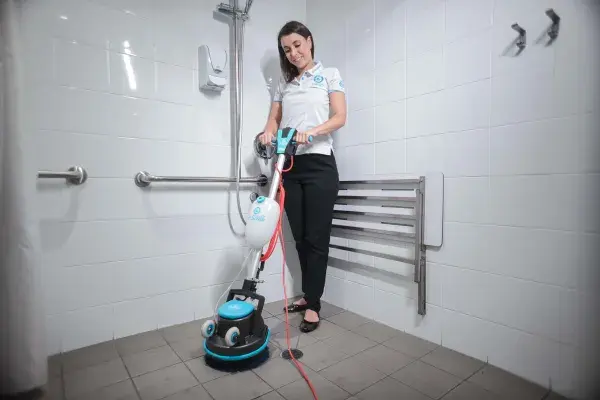You are reading: How Clean Are Your Floors, Really?
02 September 2022
8min read time
Brooke Payne
How Clean Are Your Floors, Really?
Share:
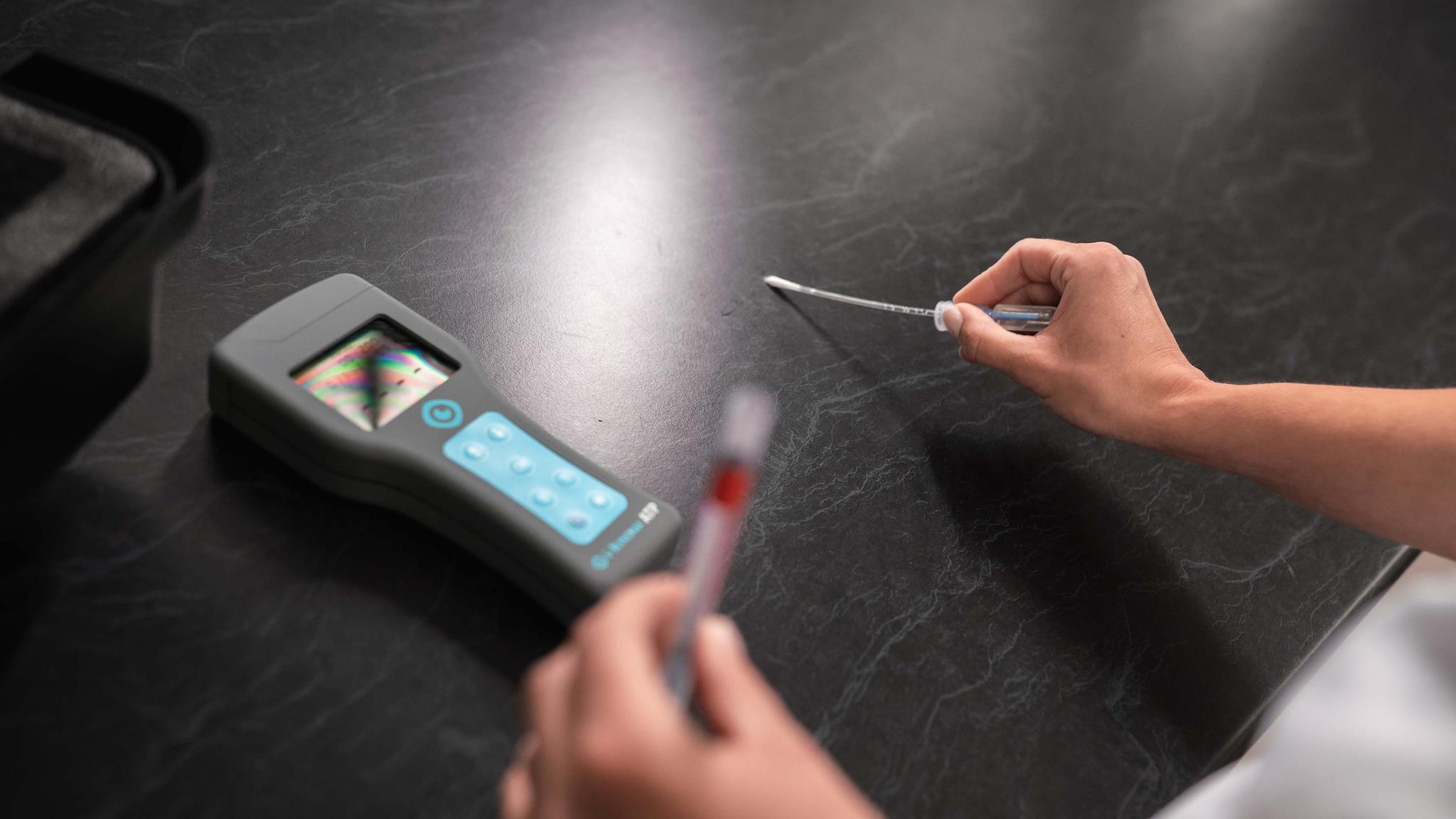
Key Insights
- Traditional mopping can move dirt and grime around your home instead of lifting and cleaning your surfaces
- By using a floor scrubber you can clean and dry your floors hygienically!
- ATP testing also helps you to check that the surfaces are actually clean by measuring the amount of bacteria not visible to the naked eye
Too often, we take the cleanliness of our floors at face value. Unfortunately, often they’re not as clean as we might think. Dirt and chemical residue is a major problem on surfaces, and traditional mopping methods generally don’t solve the problem.
There are ways you can measure the cleanliness of your floors and know, for certain, that you can trust your commercial hygiene. Do you know how clean your floors really are?
Chemical residue remains on floor surfaces
When we see a clean surface, we often don’t think about how clean it actually is, whether the shine is from good hygiene or merely residual cleaning chemicals. The truth can be concerning.
In the traditional mopping process, chemicals and dirt are often merely moved around the floor and left to dry on their own. The dirt isn’t removed - in fact, it’s often spread to other areas.
Chemical residue build-up also provides a place for bacteria to grow that is resistant to antimicrobials, as well as persistent. This, in turn, promotes a lack of hygiene and allows odours to linger.
Another part of this is slip-and-fall risks. Chemical residue can not only cause health problems, but it also poses a significant slip-and-fall hazard, as it can cause floors to be slippery. Slip and falls are the second highest cause of workplace injuries, accounting for 20% of all injuries.
Further than health risks and dangers, chemical residue will leave your floors feeling sticky and unclean. Overusing cleaning chemicals can be a key part of this stickiness. Adding a lingering odor to that can make supposedly clean floors feel not so clean at all.

ATP testing
ATP testing provides a measurable and trustworthy way of measuring the cleanliness of a surface. ATP (Adenosine Tri-Phosphate) can be found in all organic matter and is an indicator of the bacteria on a surface not visible to the naked eye. i-team does ATP testing through our i-know program to ensure that, when you think something is clean, it is clean.
We make the invisible visible, so you know how clean your floors really are.
What does the i-know kit measure?
i-know monitors four key measurables:
- Floor safety
- Cleanliness
- Surface hygiene
- Gloss levels
This means that you can measure a variety of hygiene standards to ensure that your floors are actually getting cleaned effectively and that there’s limited or no chemical or organic matter residue. The i-know kit also helps to promote floor safety. You can implement the knowledge it offers to reduce slip-and-fall hazards across the board.
Traditional mopping methods need to go
If you want to remove chemical residue from your floors, but still maintain cleanliness, traditional mop and bucket methods aren’t going to work.
The i-mop uses a combination of brush and squeegee design to contain and recapture cleaning solutions effectively. The industrial floor scrubber dryer doesn’t overuse chemical solution or water, making it friendlier for the environment as well as your floors.
Its enhanced fluid recapture system is designed to minimise dry time, slip and fall hazards, traffic disruption and edge cleaning/touch up labour costs. It has greater mechanical action and more manoeuvrability than traditional autoscrubbers, due to its design.
Our i-know kit can do a comparison of floor cleaning with the i-mop versus traditional methods to easily demonstrate the i-mop’s ROI.
i-team offers a whole suite of cleaning solutions across different areas. The i-mop can also get into all sorts of new, small and hard-to-get-to spaces while also having the total cleaning power of a full-size autoscrubber. That’s what makes the i-mop’s floor scrubbing power truly exceptional.
With our suite of products, you can know for sure that your cleaning is effective. This is perfect for industries such as hospitals, medical clinics, schools, offices and commercial food preparation areas, where you need to know that your floors and surfaces are clean.
Read: The i-mop delivers noticeable cleaning results at Halo Apartments.
In healthcare in particular, cleanliness and hygiene are a matter of life or death. The safety of not only the doctors and nurses but also the patients and visitors is vitally important. Ensuring that floors are clean and also are not a slip-and-fall risk is key to safety in healthcare.
In food service environments, the i-mop delivers total grease management by removing grease from the floor, which promotes a totally clean environment while also preventing accidents, slips and falls.
Our i-team suite of products can provide you with the guarantee of cleanliness, while also supporting it with environmental sustainability and improved safety in your cleaning processes.

Need more information on the i-mop and our cleaning equipment suite? Click here or contact us here for more information or a demonstration.
Common Questions Answered
1. What are the most effective methods for assessing floor cleanliness?
Answer: Effective methods include visual inspections, using ATP (adenosine triphosphate) testing devices to measure biological contamination, and employing surface swab tests to identify the presence of harmful microorganisms.
2. How often should floors be cleaned to maintain a high level of cleanliness?
Answer: The frequency of floor cleaning depends on the environment; high-traffic areas may require daily cleaning, while less frequented spaces can be cleaned weekly or bi-weekly. Regular maintenance helps prevent dirt accumulation and potential contamination.
3. What role do floor cleaning products play in maintaining hygiene?
Answer: High-quality cleaning products, including disinfectants and sanitizers, are essential for effectively removing dirt and killing pathogens. Choosing the right product for the floor type and the specific cleaning needs is crucial for maintaining cleanliness.
References
CleanLink – How Clean Are Your Floors?
URL: https://www.cleanlink.com/news/article/How-Clean-Are-Your-Floors--19557
Facility Cleaning Decisions – Assessing Floor Cleanliness
URL: https://www.cleanlink.com/facilitymanagement/article/Assessing-Floor-Cleanliness--21182
Janitorial Manager – Understanding Floor Cleanliness
URL: https://janitorialmanager.com/blog/understanding-floor-cleanliness
What's inside the i-know kit?
Products Featured Inside this Article
Media and Insights
Join the movement that's changing what clean means.
Be part of a cleaner world. Get a live demo at a time that suits you.
Book a Demo